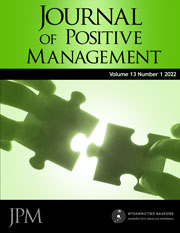The Missing Point Between Strategic Supplier Evaluation and Integration: A Dyadic Case Study
DOI:
https://doi.org/10.12775/JPM.2022.009Abstract
Purpose: The aim of this study is to explore the reasons for a supplier’s sudden withdrawal from
cooperation and thus to identify the missing element in the commonly used supplier evaluation
frameworks that determines the possibility of future dyadic integration in the supply chain.
Academic literature very often moves from supplier evaluation to strategic collaboration without
considering the activities between the two.
Methodology: The paper is based on a case study of customer-supplier dyad of manufacturing
companies. Based on the Purchasing Portfolio Matrix and the ‚Dutch windmill’ concept, the case of
supplier-customer relationship termination was investigated.
Findings: The study revealed that there should be an intermediate step between strategic supplier
evaluation and the transition to strategic cooperation. The customer was conducting an elaborate
evaluation of the supplier without being interested in how he was evaluated by his vendor. The findings
indicated the need for customers to learn about the criteria and rating level given by strategic
suppliers, also in relation to the ratings given to other customers.
Originality/value: The paper provides valuable practical implications that should help customers
avoid problems with suppliers and, in the worst case scenario, better prepare for the end of the relationship.
To generate these, a fairly uncommon research approach was used - the dyadic approach
in supply chain integration management.
Downloads
Published
How to Cite
Issue
Section
License
Copyright (c) 2023 Piotr Matlejewski

This work is licensed under a Creative Commons Attribution-NoDerivatives 4.0 International License.
Copyright
Articles submitted to the journal should not have been published before in their current or substantially similar form, or be under consideration for publication with another journal. Authors submitting articles for publication warrant that the work is not an infringement of any existing copyright and will indemnify the publisher against any breach of such warranty. For ease of dissemination and to ensure proper policing of use, papers and contributions become the legal copyright of the publisher unless otherwise agreed.
Plagiarism and ghostwriting
In response to the issue of plagiarism and ghostwriting the editors of the Journal of Positive Management has introduced the following rules to counteract these phenomena:
1. Contributors should be aware of their responsibility for a content of manuscripts.
2. Collective authors are obliged to reveal the contribution and an affiliation of each author (i.e. who is an author of specified part of a paper).
3. Any act of dishonesty will be denounced, the editors will inform appropriate institutions about the situation and give evidence of all cases of misconduct and unethical behaviour.
4. The editors may ask contributors for financial disclosure (i.e. contribution of specified institutions).
Stats
Number of views and downloads: 814
Number of citations: 0



